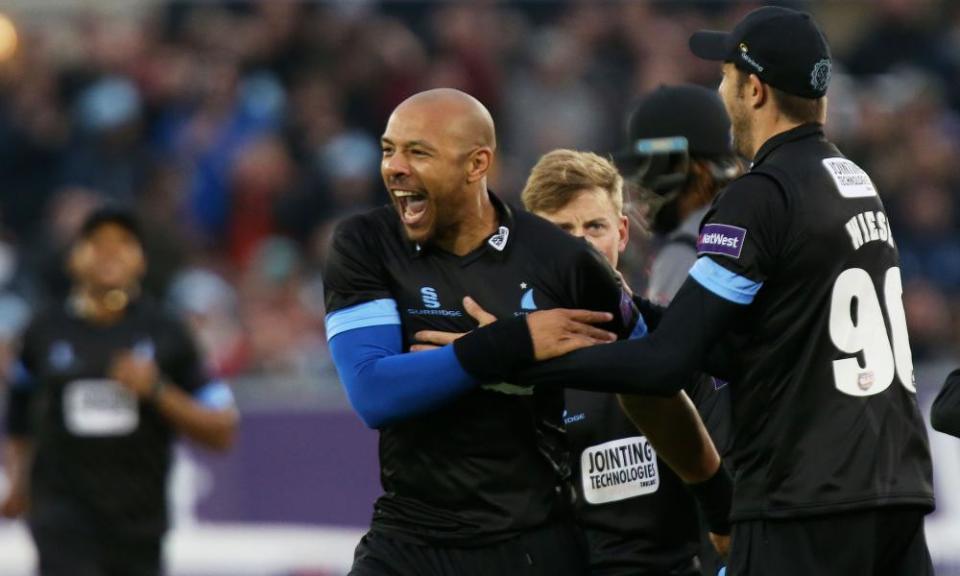With the IPL’s millions, this is surely the best time to be a top-level cricketer |Vic Marks

On Tuesday night every cricketer who has played for England has been invited to a dinner at Lord’s by the bountiful Andrew Strauss. It is an excellent idea, eagerly anticipated, and hopefully there will not be too many long speeches because when old cricketers get together there is much to discuss around the table. Firstly, of course, the past, or some legendary version of it, must be revisited and then the vagaries of the present have to be set to rights.
Usually at such gatherings this sort of observation abounds: “Well, I’m just glad that I played when I did. It was so much more fun then. Do you remember the curious incident of the …” and away they go down some winding, nostalgic cul de sac. But on Tuesday how many old cricketers will be expressing relief that they played when they did? Not this one. And as the magnitude of some of the Indian Premier League contracts announced on Monday are discussed – as they surely will be – I suspect there will be many others reaching the conclusion, without a smidgeon of envy, that there has never been a better time to be a professional cricketer.
Mind you, it is necessary to be a most exceptional cricketer to benefit from IPL largesse. Ben Stokes’ £1.7m contract with the Rising Pune Supergiants is beyond the reach of almost all of his contemporaries. Even more surprising is the £1.4m purchase of Tymal Mills by the Royal Challengers Bangalore. That is a contract that will cause a greater transformation than the one experienced by Stokes, who is already reasonably well paid by the standards of most team sportsmen beyond a football pitch.
In another era Sir Ian Botham, who has never been a wholehearted supporter of the IPL, would, no doubt, have been pursued furiously by the Indian franchises. And he would have signed for megabucks. So too would have Denis Compton and Harold Larwood – especially Larwood, since bowlers are becoming some of the most expensive players. There must be plenty of batsmen out there who can smite the ball over disappointingly short boundaries. The demand rockets at the IPL auction when the coaches are seeking men who can check the assaults.
Stokes has not always succeeded in this regard since his last major act on the World T20 stage was to yield four consecutive sixes to the West Indian, Carlos Brathwaite, 10 months ago in that final in Kolkata. How much would he have been worth without that blip? Stokes is obviously not reckoned to be too scarred by that experience.
He can bowl, he can bat, he can field; moreover he has a kind of magic, and that is no longer the parochial view. One of the fascinations of the auction is to gauge how those outside of the England bubble view their players. They are clearly excited by Stokes beyond Lord’s and Chester-le-Street, where they will seldom see him play again. For the Durham faithful membership of the Pune Supergiants seems the only way.
Stokes is fortunate to be playing at a time when the England hierarchy is quietly encouraging links with the IPL, which was far from the case when Strauss was captain. Kevin Pietersen was a major attraction for the IPL and understandably the feeling was mutual. But this became a terrible source of friction between the England and Wales Cricket Board and Pietersen, as well as within the England dressing room.
There was a hint of envy then but Stokes will not have to endure any of that from the current England team. His relationship with the players is on a different plane to Pietersen’s a few years ago. Moreover Stokes’ career path now provides the template for a future in which the best English white-ball cricketers are encouraged by their cricket director to broaden their experience by playing in the IPL whenever that is possible.
Stokes will surely retain his absolute commitment to playing for England, whatever the format. Nonetheless, since his attraction to IPL franchises was so widely forecast, it would be surprising if Strauss had not taken this into account when formulating his new leadership team for Test cricket. There was logic in having a wee bit of insurance by offering Stokes the vice-captaincy.
The oddity now is that Stokes is likely to have a higher profile in India than in England. No matter that the IPL is broadcast on a subscription channel out there, Stokes is going to be on every billboard as the competition’s highest-paid overseas cricketer. He will be instantly recognised from Mumbai to Kolkata. He had better get used to being mobbed.
Clearly the hiding of cricket on a subscription channel here does matter since part of the plan for the new T20 competition in England in 2020 is to ensure that a minimum of 10 games are available on terrestrial television. Even in the 21st century this still makes a difference. Recently it has meant that a remarkably large number of people can currently spot a Ross Moriarty or a Nathan Hughes at the back of the scrum. Cricket is having to back-pedal surreptitiously in this regard and one problem is that their sport is no longer so attractive to terrestrial channels. Stokes should be a household name not just in India, but in his own country.
However as the English authorities desperately seek to find a way to mimic the success and the razzmatazz of the IPL and the Big Bash in Australia, including some terrestrial TV along the way, there will be no Stokes to lead the charge since the current plan will find him playing Test cricket when that English T20 extravaganza is launched in 2020.

 Yahoo News
Yahoo News 